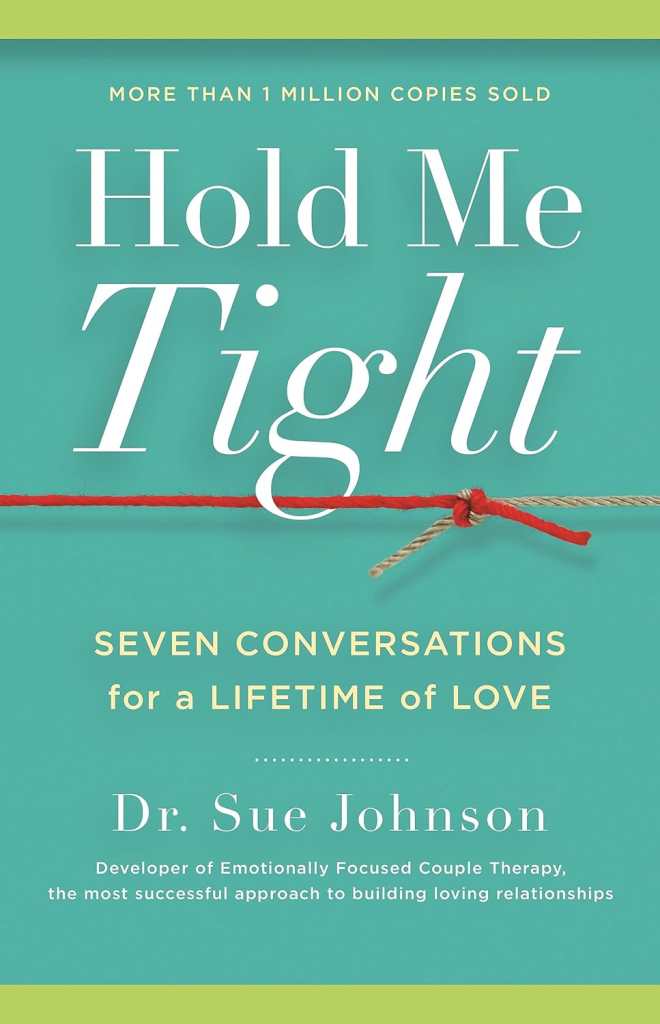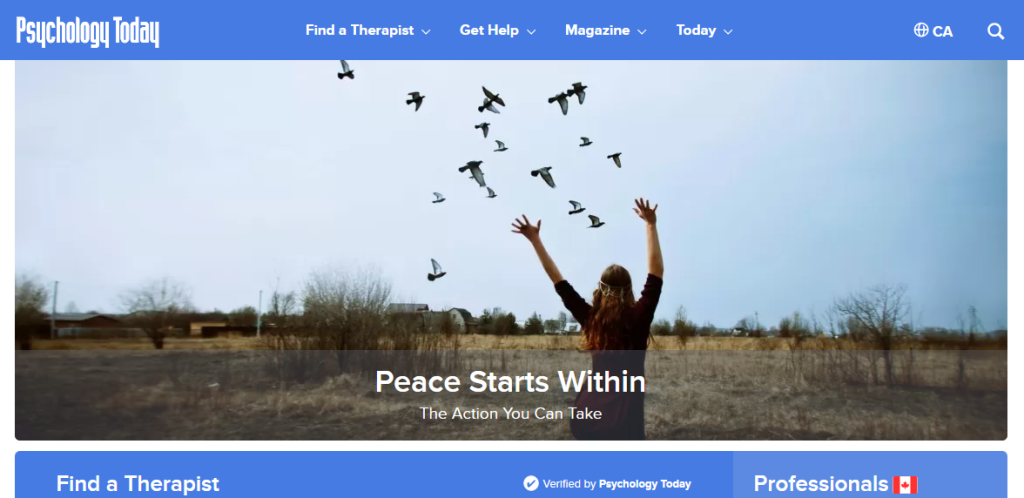Facing relationship stress? Discover how to manage stress and build resilience together with our comprehensive guide.
The Truth About Relationship Stress in 2025
When Lisa and Mark started living together, they had no idea their biggest challenge wouldn’t be each other – it would be everything else. Their story mirrors what many couples face: work deadlines, financial pressures, and family obligations that test even the strongest bonds.
Research from the American Psychological Association shows that 85% of couples report external stress as their primary relationship challenge in 2025. Yet, most relationship advice focuses on internal dynamics, missing the real threat: the outside world.
The problem isn’t just about handling stress – it’s about protecting your relationship from forces that neither partner can fully control. Think about your own relationship. When was the last time you felt completely free from outside pressure? If you’re like most couples, you might struggle to remember.
But here’s what’s interesting: Studies show that couples who master external stress management are 3.5 times more likely to report relationship satisfaction. The key isn’t avoiding stress – it’s learning specific techniques to handle it together.
This guide breaks down tested methods that successful couples use to stay strong under pressure. These aren’t theoretical concepts – they’re practical tools used by real couples who face real challenges every day.
What you’ll learn goes beyond basic stress management. You’ll find specific strategies that work when both partners are stretched thin, when communication breaks down, and when you need immediate solutions to protect your relationship from outside pressures.
What makes these approaches different? They focus on strengthening your relationship while handling external stress – not treating them as separate issues.
1. Managing Relationship Stress: Step-by-Step Guide

- Understand how outside pressures affect your relationship.
- Include stress-relief actions into daily schedules.
- Set limits to protect your relationship from outside strains.
Step 1: Identify the External Stressors
External factors can play a big role in a relationship. These might include work demands, financial challenges, or family obligations. First, pinpoint the sources of each stressor. Is it specific deadlines at work, bills piling up, or family issues causing tension? Document each to gain a clear view.
Next, talk with your partner about these factors. Open dialogue is key. Share your feelings candidly and listen to theirs. This isn’t about finding immediate solutions but understanding why these external factors stress you out. Equally, recognize if your partner feels similarly. Couples who are aware of the same stressors can better support each other.
Step 2: Implement Stress-Reduction Techniques
After identifying stressors, introduce stress-relief practices into your lives. These can be physical activities like yoga, meditation, or daily walks. Physical activity eases tension and fosters a calmer mindset.
Some couples find relief through creative outlets, such as painting or playing music. The key is to choose activities that both of you enjoy. If one partner loves running and the other prefers reading, balance these preferences. Maybe agree on quiet time when one person can read while the other goes for a run. Create a shared schedule that accommodates both partners’ likes.
Different Techniques for Different Needs
Notice that what works best may vary. What suits one couple might not suit another. Explore relaxation exercises together, like deep breathing or progressive muscle relaxation. Practice these on weekends or evenings. This joint effort can reduce stress and build emotional intimacy.
Step 3: Set Boundaries with External Stressors
Protecting your relationship from external tension involves establishing boundaries. Determine acceptable limits for external responsibilities. For instance, decide together if work calls are off-limits during dinner. Express these boundaries clearly and respectfully to others.
🪄 A study from the Journal of Marriage and Family found that open communication about stressors significantly reduces relationship conflicts.
During intense stress periods, prioritize relationship time. Resist the urge to drown in work or other obligations. Dedicate time, like regular dates or quiet evenings, to focus on each other. Use this period to disconnect from outside pressures and strengthen your bond.
Revisiting Boundaries
Boundaries need reevaluation over time. Periodically check in with each other to see if the set limitations still hold up. Adapt boundaries when necessary, and make sure they feel fair and supportive to both partners. Encouraging open communication here is essential. As Mark Manson said, “Anxiety arises when relationships become too rigid—bringing more flexibility can aid greatly.”
Understanding external factors, practicing stress relief, and setting boundaries can buffer relationships from extensive pressure. This awareness paves the way for better communication, which is vital in any strong relationship.
Strengthening Couples’ Communication Skills

- Helps partners connect through open communication.
- Encourages regular discussions to manage stress.
- Offers actionable steps to enhance relationship resilience.
Open Dialogue Practices
Effective communication is the bedrock of any healthy relationship. How partners communicate their wants and needs significantly affects the quality of their connection.
Encourage Sharing Feelings Without Judgment
- Create a Safe Space: Ensure that conversations take place in a relaxed environment where both partners feel comfortable. This might be at home with minimal distractions. A safe environment helps partners open up.
- Use “I” Statements: This allows you to express feelings without sounding accusatory. For instance, say, “I feel stressed when…” instead of “You make me stressed.” This promotes understanding rather than defensiveness.
- Practice Empathy: Try to genuinely understand your partner’s perspective before responding. This involves being fully present and attentive to what they are sharing. Remember, it’s about listening to understand, not to reply.
- Validate Feelings: Acknowledge your partner’s feelings, even if you don’t necessarily agree. Validation doesn’t mean you agree; it means you recognize their emotions are real and significant.
- Avoid Interruptions: Let your partner finish their thoughts without cutting them off. This shows respect for their viewpoint and indicates you value what they are saying.
- Response Time Is Key: Give your partner time to express themselves and take a moment before responding to process what they have shared. This reduces knee-jerk reactions that might escalate tensions.
Applying these steps fosters a supportive atmosphere for sharing feelings without the fear of judgment. It sets a positive tone and encourages ongoing dialogue.
“How you communicate your wants, needs, and desires to your partner and how they receive that, and vice versa, is the foundation of your relationship.” – Vijayeta Sinh, PhD
Image Suggestion: A calm couple having a conversation at a dining table.
Utilize Active Listening to Ensure Understanding
- Focus on Listening: Pay attention to what your partner is saying without planning an immediate response. This indicates genuine interest and concern for the issue discussed.
- Reflect and Clarify: Paraphrase what your partner has said to ensure you understood correctly. You might say, “So you’re saying that when I do this, it makes you feel…?”
- Use Non-verbal Cues: Show you are listening through body language. Nod occasionally, maintain eye contact, and be mindful of facial expressions.
- Ask Open-Ended Questions: These invite deeper discussion and exploration rather than limiting responses. For example, “What can we do to prevent this stress from affecting us?”
- Notice What Isn’t Said: Like Peter Drucker pointed out, being aware of nonverbal cues and emotions provides insights into your partner’s feelings that aren’t voiced.
Mastering these techniques promotes mutual understanding, reducing misunderstandings that arise from poor communication.
“The biggest communication problem is we do not listen to understand. We listen to reply.” – Stephen R. Covey
Image Suggestion: Couple sitting on a couch, attentively listening to each other.
Regular Check-Ins
Routine check-ins are essential for couples to stay connected and address underlying issues before they become larger problems. Scheduled discussions provide a dedicated time and place to talk openly about stresses impacting the relationship.
Schedule Consistent Times to Discuss Issues
- Plan Specific Days: Set regular days, perhaps weekly or bi-weekly, for scheduled talks. This ensures that time is specifically allocated for these discussions and isn’t left to chance.
- Set an Agenda: Outline key points you wish to discuss beforehand. This keeps the conversation focused and relevant rather than veering off into unrelated topics.
- Stick to the Time: Respect the scheduled time without extending it unnecessarily. This respects both partners’ schedules and enhances the likelihood these check-ins will be part of your routine.
- Review the Past Week: Take time to discuss both struggles and successes. Recognize what went well and what could be improved to better support each other.
Regular check-ins prevent small grievances from escalating into larger issues. It helps couples remain proactive rather than reactive in managing relationship stress.
Image Suggestion: Close-up of a couple writing notes on a calendar marking their check-in date.
Discuss How Stress Is Affecting the Relationship
- Acknowledge Stressors: Begin by recognizing the external stressors affecting both partners, such as work deadlines or personal challenges. This helps clarify what requires collective attention.
- Express Impact on the Relationship: Share how these stressors impact individual feelings and behaviors. For example, “I find myself more irritable when stressed, which affects our days.”
- Collaborative Problem-Solving: After discussing the impact, brainstorm together strategies to tackle these stressors. Consider if there are any joint efforts that could ease the burden.
- Celebrate Small Wins: Don’t forget to highlight positive experiences and accomplishments as a couple. Positivity reinforces the strength of your partnership in facing challenges.
Discussing these matters allows couples to see the stress’ role within the relationship rather than letting it drive a wedge between them. Proactive conversations strengthen the relational bond by fostering teamwork and support.
🪄 Studies suggest that couples who engage in open dialogue are 70% more likely to resolve conflicts amicably.
These practical communication strategies sustain couples through stressful times by encouraging open, judgment-free dialogue. Understanding each other’s needs and consistently checking in helps to mitigate the effects of external stress. Yes, stress can strain a relationship, but with intentional communication, couples can create a resilient and supportive environment.
Advice for Couples Dealing With External Stressors: 5 Thought Leaders Weigh In
We asked 5 thought leaders the question: “What is your biggest piece of advice for couples dealing with external stressors that are affecting their relationship? How do you support each other during challenging times?”
Here is what they had to say:
- Establish Dedicated Stress-Free Zones
- Set Boundaries Around External Stressors
- Respond to Stress with Commitment
- Prioritize Teamwork and Open Communication
- Practice Effective Communication and Active Listening
Establish Dedicated Stress-Free Zones
Drawing from my years of experience as an executive coach working with couples, I’ve observed that the most crucial advice is to establish dedicated, uninterrupted “stress-free zones” where partners can connect without discussing external pressures, even if it’s just 30 minutes daily.
During challenging periods, I’ve seen the most resilient couples maintain a practice of active listening—setting aside their own concerns momentarily to fully understand their partner’s experience without immediately trying to solve their problems.
A powerful strategy I often recommend is the “stress check-in” ritual, where partners regularly rate their stress levels on a scale and share specific ways their partner can support them, whether that’s through practical help or emotional presence.
Most couples I’ve coached find success when they reframe external stressors as “us versus the problem” rather than letting challenges drive a wedge between them, creating a united front against whatever they’re facing.
Finally, I consistently emphasize the importance of maintaining small acts of connection—like a morning coffee ritual, a quick midday text, or a goodnight embrace—as these seemingly minor touchpoints help anchor couples during turbulent times and prevent external stressors from eroding their emotional intimacy.

Joshua Miller, Master Certified Executive Leadership Coach, Joshua Miller Executive Coaching
Set Boundaries Around External Stressors
Outside stressors can impact our relationships and have the potential to drive a wedge between us and our partners. It’s important to set boundaries as best as possible around the situation and around discussing it. Be intentional about setting aside time for you and your partner to connect and take a break from thinking about it. Ask your partner for advice when you’d like advice and for support or validation when that is what you are looking for. Don’t expect your partner to know what you need, you have to tell them. If you want to help but don’t know how, ask your partner what they need. Validation and empathy can go a long way when dealing with outside stressors.

Kayla Crane, LMFT, South Denver Therapy
Respond to Stress with Commitment
Stress will inevitably build us up, either through small breakdowns and adaptations or large breakdowns and adaptations. This is the process of life. Relationships are impacted/changed/altered by any stressor and/or change. How well the relationship responds to stress and change is dependent on the intentions, commitment, and systems of the individuals in the relationship.
Relationships are made up of and are a result of the interaction of individuals. As individuals change and grow, a process that is continuous for human beings, the relationship also changes. Change, by definition, is stressful and often driven by our response to external stressors. Therefore, marriages/relationships are constantly changing and responding to external (and internal) stressors.
The systems of relationships are grounded in habits, networks of support, and traditions. Habits like daily, weekly, and monthly check-ins on emotions, tactical success or failure, goals, strategies, and financial well-being are essential in marital relationships in particular. Having family, friends, work, and personal interest and personal care and development networks individually and together are also huge in the well-being of the individuals and therefore the relationship. This can include personal trainers, coaches, therapists, pastors, etc. Traditions that support shared values and networks serve as glue for all of these parts. A relationship that has all these pieces in place will weather almost any storm effectively.
External stressors will test the strength of any and all of these and inform us as to how we can improve and/or better utilize these facets of the relationship together. Crises/Stressors will also reveal the chinks in our relationship “systems” and many of us naturally go to fear, blame, and anger. Wherever the “weakness” or part of our individual life is being impacted, the starting point post-triage is self-care, then consulting with our partner, and leaning into the external network third.
We always want to keep our battery at 100% (self-care). Our partner (in a healthy relationship) provides synergy, empathy, compassion, and immediate support. External help—usually an expert in the area we feel challenged—brings knowledge, experience, and specific strengths and emotional support to meeting the challenge.

Rich Heller, Mediator, Relationship Expert, Rich in Relationship
Prioritize Teamwork and Open Communication
My key recommendation for couples coping with outside stressors is to prioritize teamwork while keeping lines of communication open and honest. Establishing a secure environment where both spouses can express their emotions without fear of criticism and collaborate to find solutions is crucial during trying times.
Even if the stressor isn’t immediately affecting both couples equally, supporting one another still entails demonstrating empathy and understanding. For instance, scheduling little moments of quality time or sharing domestic duties can strengthen your bond and enable you to confront outside obstacles as a team.

Khurram Mir, Founder and Chief Marketing Officer, Kualitatem Inc
Practice Effective Communication and Active Listening
Effective communication with active listening is crucial in any relationship. During times of stress, people often need to vent and share their thoughts with someone they trust. It’s essential for both individuals in a relationship to have the opportunity to express their feelings fully, without interruption. One person should feel comfortable sharing their stress while the other listens attentively, and then the roles should reverse.
Creating a safe space for open communication means avoiding criticism, pressure, or impatience. It’s important that each partner feels heard and understood without feeling rushed or judged. Couples should also prioritize connecting without the constraints of time, allowing them to focus on supporting each other genuinely.
Additionally, it’s vital for each person to clearly state their needs. Some may simply want to vent, while others may be seeking help to find a solution. Active listening means respecting those needs-avoiding unsolicited advice and instead offering the specific support the other person is asking for. By doing this, couples can strengthen their bond and better navigate stress together.

Lena Hardy, Spiritual Coach, Intuitive Clarity Coaching
Coping Mechanisms for Relationships: Advanced Tips

- Learn humor’s role in defusing tension.
- Avoid pitfalls that can harm relationships.
Additional Advice for Managing Stress
Use Humor as a Tool for Easing Tension
Humor can be a powerful ally in relationships. It helps diffuse tense situations. By lightening the mood, humor aids in shifting perspectives away from immediate stresses. According to HelpGuide.org, “Laughter is a powerful tool for bringing people closer together, managing conflict, and reducing tension”. When you use laughter appropriately, it creates a bond. It prevents problems from escalating. Couples should foster an environment where humor is welcomed as a coping mechanism for stress.
To harness this tool effectively, couples can introduce light-hearted rituals or share funny stories. Research shows humor increases happiness and satisfaction within relationships. Consider diving into books like “The Humor Code” by Peter McGraw and Joel Warner. This explores how humor varies across cultures. However, it’s crucial to maintain sensitivity. Humor that seems dismissive can damage trust. Ensure the humor aligns with the relationship’s dynamic.
Maintain a Team Approach in Problem-Solving
A team-oriented mindset helps couples face challenges together. Viewing issues as a team problem fosters unity. It strengthens the bond. Couples who work as a team benefit from shared decision-making processes. They often handle stress better. They experience greater resilience in their relationships. For those seeking a deeper understanding of teamwork dynamics, “The Five Dysfunctions of a Team” by Patrick Lencioni offers insights on overcoming obstacles that hinder collaborative efforts.
When couples maintain this outlook, they can effectively combine their strengths and weaknesses. They navigate hurdles collectively. This mindset prevents the feeling of isolation when facing challenges. One pitfall to avoid is letting competition develop between partners. It’s vital to support cooperative problem-solving. Techniques like setting shared goals or assigning tasks based on individual strengths bring synergy.
Common Pitfalls and How to Avoid Them
Avoiding Confrontation Can Lead to Bigger Issues
Dodging confrontation in relationships might provide temporary peace, but it can cause more problems. Over time, unresolved issues build tension. They worsen the situation. As seen in Staci Bartley’s observation, delaying relationship issues can lead to negative outcomes [5]. Avoiding important conversations about difficult matters results in misunderstandings. Addressing concerns early and openly can prevent larger problems down the line.
To tackle this challenge, adopt open communication styles discussed in books like “Nonviolent Communication” by Marshall Rosenberg. This book delves into expressing oneself honestly. It nurtures a peaceful conflict resolution climate. It argues against avoidance, promoting a proactive approach. While confrontation seems intimidating, framing it as an opportunity to strengthen relationships can shift perspectives. For continued exploration, consider resources on negotiation and conflict resolution strategies.
Ignoring Partner’s Needs May Worsen the Effects
Recognizing and addressing your partner’s needs is crucial. Failing to do so leads to unmet expectations. Over time, this neglect breeds resentment. As the Gottman Institute points out, mutual fulfillment of needs is essential for a thriving relationship. When needs are consistently overlooked, partners can feel undervalued and dismissed. This can erode emotional connectivity.
‘Emotional connection is the key to safety and happiness.’
Dr. Sue Johnson
To tackle this issue, actively engage in conversations about personal needs and aspirations.
Read books like “The Seven Principles for Making Marriage Work” by John Gottman. The book highlights strategies for nurturing mutual respect and understanding.

Improvement starts with acknowledging that everyone’s needs evolve. Implement regular check-ins. This helps in staying attuned to changes. Establishing honest lines of communication reaffirms commitment within partnerships.
🪄 Current statistics on relationship health shows how humor and teamwork positively affect the longevity and satisfaction of relationships.
Building Emotional Resilience in Couples

- Learn techniques to strengthen emotional bonds.
- Explore activities that enhance resilience.
- Handle external stressors together.
Techniques for Enhancing Emotional Strength
Let’s get into it.
Develop Empathy and Understanding Between Partners
- Create a Safe Space
Ensure your home environment feels safe and open for both partners. Set aside a quiet time each day for open discussions. Both need to feel comfortable sharing thoughts without fear of judgment. - Practice Active Listening
When your partner speaks, give full attention. Use body language like nodding and encourage by saying “I see” or “I understand.” This validates their feelings and enhances understanding. - Communicate Openly
Use “I” statements like “I feel” to express emotions. This reduces blame and keeps the focus on feelings instead of accusations. Avoid interruptions and encourage each other to be open and honest. - Respect Differences
Recognize that differences in perspective are okay. Celebrate these differences as they can bring balance to the relationship. For example, one partner’s calm demeanor can complement another’s enthusiasm.
Focus on Gratitude and Positive Aspects of the Relationship
- Daily Gratitude Practice
Each day, share one thing you appreciate about each other. Whether it’s how they made dinner or a supportive comment. This keeps focus on positive aspects and fosters a loving environment. Lindsay Walden highlights that “every note of thanks, whether shared or private, contributes to a greater sense of unity and relationship resilience.” - Create a Gratitude Jar
Write small notes about positive aspects and place them in a jar. At the end of the month, read these together. It helps see how much you value each other. Consider setting a recurring reminder on your phone. - Celebrate Milestones
Acknowledge small wins in your relationship, like overcoming a disagreement. Plan a small celebration, perhaps a special dinner or an evening walk. It reinforces positive experiences and strengthens bonds.
Resilience-Building Activities
Participate in Workshops or Classes Together
- Select a Topic
Identify an area you both want to grow in. This could be communication skills or stress management. Research online or local workshops that align with this interest. - Schedule Time Together
Block times in your calendar to attend. The act of learning something new together can deepen your connection. Ensure both are committed to attending and avoid other commitments during these times. - Reflect Together
After each session, discuss what was learned. Share thoughts on how this new knowledge can be applied in daily life. This helps embed the lessons and reminds each other of the shared journey.
Explore New Hobbies That Interest Both Partners
- Identify Shared Interests
Discuss hobbies each enjoys or would like to try. Find common interests such as hiking, painting, or gardening. Try to pick at least one activity that is new to both of you. - Schedule Regular Sessions
Dedicate time weekly or monthly for the hobby. Ensure no disruptions by turning off phones and focusing on the experience together. This routine builds expectations and becomes something to look forward to. - Track Progress
Keep a journal or scrapbook of your new activities. Include photos or notes about the fun moments. Review these periodically to remind each other of shared accomplishments. - Adjust and Evolve
As interests change, periodically reassess and select new activities. This ensures continued excitement and challenge. Engaging in a new hobby together can enhance creativity and problem-solving skills as a couple.
Troubleshooting Common Issues

- Solve small conflicts early to prevent them from growing.
- Learn strategies to resolve conflicts through compromise.
- Strengthen resilience against external stress-related conflicts.
Solutions to External Stress-Related Conflicts
Quickly addressing conflicts that stem from outside pressures is essential. While external stressors can create tensions, taking a systematic approach can effectively manage and resolve such conflicts. Here’s a comprehensive guide on how to address these issues:
Address Small Conflicts Quickly Before They Escalate
- Identify Conflicts Early
Notice early warning signs of conflict, like changes in communication styles or avoidance. Pay attention to recurring topics that cause disputes. - Open Dialogue
Encourage partners to talk about what’s bothering them. Use a calm approach to bring up these issues, ensuring both parties feel heard. - Set a Specific Time for Discussion
Choose a suitable time and environment to discuss these differences. Avoid conversations when emotions are high or when either partner is busy. - Stay on Topic
Focus on the specific conflict at hand. Avoid bringing up past grievances or unrelated matters that may divert the discussion. - Establish Ground Rules Together
Agree on rules for discussing conflicts, like no interruptions and taking turns speaking. This helps keep the conversation respectful and focused.
Use Conflict Resolution Strategies to Reach Compromises
- Active Listening
Practice listening attentively to what your partner is saying. Repeat back what you hear to clarify and confirm understanding.
“The quality of our lives depends not on whether or not we have conflicts, but on how we respond to them.” – Thomas Crum
- Express Emotions Clearly with “I” Statements
Use “I” statements to express feelings without blaming. For example, say “I feel overwhelmed when…” instead of “You always make me…” - Recognize and Respect Differences
Acknowledge that both partners may have different viewpoints. This recognition can foster empathy and understanding. - Explore All Possible Solutions
Brainstorm potential solutions together. Encourage suggestions from both sides without judging ideas immediately. - Seek a Win-Win Outcome
Aim for a solution that satisfies both parties. Avoid compromise solutions that leave one partner feeling shortchanged or upset. - Document Agreements and Follow-Up
Once a resolution is reached, note down the agreements made. Revisit these commitments periodically to ensure they’re being upheld.
It’s important to remember that successful conflict resolution usually involves some form of compromise.
🪄 59.8% of professionals favor a collaborative conflict style, aiming for a solution that benefits all parties involved.
Niagra Institute
Having effective conflict resolution strategies in place is critical for couples. It builds resilience against external stress, which inevitably affects the relationship dynamics. Keep adapting these strategies as necessary, ensuring that both partners feel supported and heard throughout the process.
Further Resources and Reading

- Books on relationship stress offer deep insights.
- Blogs offer ongoing tips and advice.
- Friends and family are crucial during tough times.
Related Topics or Advanced Guides
Delving into books on stress management for couples can provide deeper perspectives and strategies. Start with “Hold Me Tight” by Dr. Sue Johnson.
This book presents seven transformative conversations that can help couples connect on a deeper level. It’s based on Emotionally Focused Therapy, which is highly regarded in the field of relationship psychology.

Another recommendation we already discussed earlier, but is worth repeating here, is “The Seven Principles for Making Marriage Work” by Dr. John Gottman. This book provides practical advice grounded in extensive research.
Blogs like In Deep can also be invaluable for continuous learning. Websites like Psychology Today feature a range of expert pieces on managing relationship stress. These platforms are excellent for staying updated on the latest strategies and insights. They offer diverse points of view, helping you see your relationship dynamics through different lenses. The ongoing access to new content allows couples to integrate fresh ideas into their relationship, aiding long-term resilience.

Understanding the Role of Support Networks
Support networks play a vital role in managing stress in relationships. Friends and family can provide a comforting space and can sometimes offer unbiased perspectives that help resolve conflicts. Engaging with a supportive network helps couples share burdens and gain insights into how others cope with similar challenges.
Strengthening connections with mutual supportive networks involves open communication and shared experiences. Group activities or collective meet-ups foster deeper relationships with those you rely on. Research by Stanford University shows that those engaged with support networks report higher levels of relationship satisfaction. It underpins the importance of deliberate engagement and investment in these relationships to handle stress effectively.
Exploring the Benefits of Professional Guidance
Counseling and therapy can be pivotal in helping couples manage and mitigate stress. Professional guidance offers structured strategies tailored to individual needs and circumstances. The key here is understanding that professional help can shine a light on areas unseen by the couple, enabling them to develop effective coping mechanisms.
Dr. John Gottman, a leading expert in this space, notes that working through tough moments with professional support can enrich relationships, turning challenges into growth opportunities. Contrary to common belief, counseling isn’t just for when things go wrong; it can prevent potential issues before they become significant problems, offering a proactive approach to relationship health.
Online Platforms for Continuous Learning
Digital platforms and apps dedicated to relationship wellness provide easily accessible tools for continuous learning and improvement. Apps like Paired or Lasting offer quizzes, discussion prompts, and exercises that encourage daily interaction and reflection. These aids can help bridge communication gaps and facilitate deeper understanding.
Online forums and communities offer peer support and shared learning experiences. Connecting in digital spaces lets couples engage with a broader audience, learning from diverse experiences and insights. Engaging in discussions on platforms like Reddit’s relationship advice threads can provide real-world examples and solutions that cannot be gleaned from traditional resources.
Joining Communities Focused on Relationship Growth
Joining community groups or workshops focused on relationship growth and resilience can be a game-changer. Whether online or in person, these communities offer a platform for shared experiences and learning. Engaging in workshops designed to tackle specific stressors can offer targeted strategies that might not be immediately obvious.
In-person meetups and peer-led discussion groups bring an additional layer of support. They allow couples to see their own issues reflected in the experiences of others, fostering both empathy and solidarity. Participating in these communities provides ongoing support even after workshops have concluded, helping couples maintain and implement new strategies in their relationship journey.
🪄 Research suggests that couples engaged in continual learning and adaptive strategies report greater satisfaction.
Conclusion
Relationships grow stronger when couples face external stress as a team. Both partners need clear communication and mutual understanding to get through tough times. The methods we discussed today work best when both people commit to them fully.
Remember that managing stress is an ongoing process. Small, daily actions matter more than big changes. Keep regular check-ins with your partner. Share your thoughts openly. Listen actively. These habits build trust and emotional connection over time.
Every couple faces unique challenges. What works for others might need adjustment for your relationship. Stay flexible and patient as you try different approaches. If one method doesn’t work, try another. The goal is finding what fits your relationship’s specific needs.
Most importantly, maintain perspective. External stressors come and go, but your relationship deserves protection and care. Make time for joy together, even during difficult periods. Keep supporting each other’s growth. Remember why you chose each other.
Start with one technique today. Perhaps schedule a weekly check-in or practice active listening during dinner. Build from there. Your relationship’s strength lies in how you handle challenges together.
Looking for more ways to improve your relationship and intimacy?
Visit In Deep, your go-to source for expert-backed advice on relationships, emotional wellbeing, and sexual intimacy. Discover tips, resources, and tools to deepen your connection with your partner today.

Leave a Reply